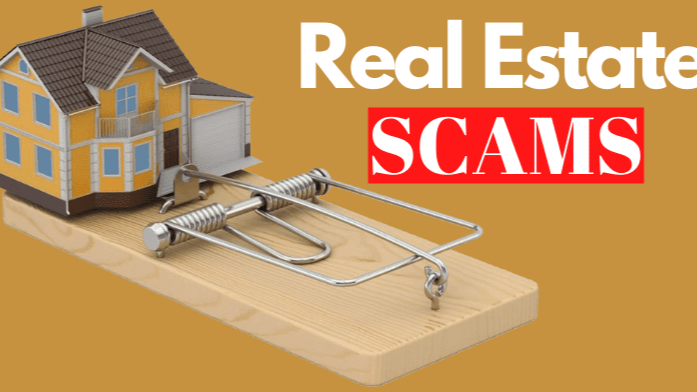 25, Jun 2025
25, Jun 2025
- By Ozioma Dike
- Home Buying & Selling Guides
How to Avoid Real Estate Scams in Nigeria: A 2024 Buyer’s Guide
Buying property in Nigeria should be exciting, but for many, it becomes a nightmare due to rampant fraud. From "Omo-Onile" land grabbers to fake agents and forged documents, scams cost Nigerians billions yearly. In Lagos alone, 42% of property disputes in 2023 involved fraudulent transactions (Source: Nigerian Institution of Estate Surveyors and Valuers). Don’t become a statistic! This guide arms you with actionable steps to outsmart scammers and buy with confidence.
1. Verify Land Ownership Thoroughly
The Scam: Sellers present fake Certificates of Occupancy (C of O) or claim non-existent government allocations.
Your Shield:
- Visit the State Land Bureau: Physically verify documents at the relevant state agency (e.g., LASLBA in Lagos, FCDA in Abuja).
- Demand a Survey Plan: Cross-check it with the Surveyor-General’s Office.
- Search at the CAC: Confirm corporate sellers via the Corporate Affairs Commission (CAC) portal.
Pro Tip: Insist on seeing the seller’s original ID – match names meticulously!
2. Spot & Avoid Fake Real Estate Agents
The Scam: Unregistered "agents" vanish after collecting deposits or show properties they don’t represent.
Your Shield:
- Check Credentials: Demand their NIESV (Nigerian Institution of Estate Surveyors and Valuers) or ESVARBON license number.
- Verify Agency Agreement: Legitimate agents have signed agreements with property owners.
- Avoid Upfront Cash Payments: Never pay "processing fees" before due diligence.
3. Identify Duplicate or Encumbered Properties
The Scam: Same property sold to multiple buyers or tied to hidden debts.
Your Shield:
- Conduct a Search at the Registry: A Governor’s Consent search reveals true ownership and liens.
- Check Court Records: Visit state High Courts for pending litigation on the property.
- Demand a Sworn Affidavit: Sellers should swear the property is dispute-free.
4. Avoid Omo-Onile Extortion
The Scam: "Landowners" demand illegal fees after purchase.
Your Shield:
- Buy Only Government-Acquired Land: Focus on estates with documented state acquisition.
- Engage Local Lawyers: Hire lawyers from the property’s area to investigate community claims.
- Get Written Community Consent: If buying direct from families, involve village heads in writing.
5. Never Skip Physical Inspection & Documentation
The Scam: Buyers pay for unverified land or properties that don’t match descriptions.
Your Shield:
- Visit Site with a Surveyor: Confirm boundaries and beware of swampy/zoned-off areas.
- Photograph Everything: Document physical features, street signs, and neighbors.
- Use Escrow for Payments: Secure transactions via banks or licensed property lawyers.
6. Recognize "Too Good to Be True" Deals
The Scam: Luxury apartments in Ikoyi for ₦20M? Scammers bait buyers with impossible prices.
Red Flags:
- Pressure to pay "today only."
- Refusal to meet at their office.
- Vague answers about documentation.
7. Partner with Professionals
Cutting corners to "save money" is the #1 reason buyers get scammed. Always engage:
- Licensed Estate Surveyors & Valuers (NIESV-registered)
- Property Lawyers (SAN or state-bar accredited)
- Reputable Real Estate Companies (Verify their CAC registration and physical office).
Conclusion: Safety First, Savings Second
In Nigeria’s real estate market, vigilance isn’t optional – it’s survival. By verifying documents, working with licensed professionals, and trusting data over promises, you’ll secure not just a property, but peace of mind. At [Your Company Name], we conduct 12-point due diligence on every listing and offer free scam-prevention consultations. Book yours today TechCity Real Estate Company.
Subscribe To Our Newsletter
It is a long established fact that a reader will be distracted by the readable content of a page when looking at its layout.





